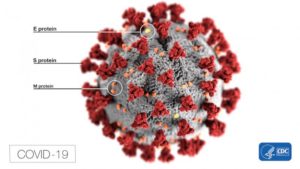 COVID-19 (Coronavirus) Resources
COVID-19 (Coronavirus) Resources
Experts are working hard to determine how to best fight the COVID-19 pandemic to minimize loss of life and to prevent the overwhelming of our healthcare system. Most recently, restrictions have been put into place to minimize social contact. While these lifestyle changes may be difficult, they are imperative to prevent spread of the virus. Please be patient, follow guidelines: stay home if you or your child are ill, and wash hands often.
If you feel that your child is sick, please call our office first. For the safety of you, your child, and our staff, we may recommend that you and your child remain at home. In other instances, we may schedule appointments at our office.
Guidelines are constantly changing. We have compiled this page to provide you with information regarding how to best protect yourself and your children.
Testing Resources
If you are considering testing, please call the location to confirm the procedures that they have in place. Many require preregistration and are drive up testing. Some are limited on what ages they will test. Also keep in mind that a rapid antigen test that comes back negative could be a false negative and you still could be at risk so if you or your child are symptomatic, quarantining for 14 days is always the best recommendation to prevent spread.
How to protect yourself
- Wash your hands frequently with soap and water or alcohol based hand sanitizer (60% or higher alcohol content) . Remember to rub hand together for at least 20 seconds. Use paper towel to turn off faucet and to open any doors.
- Avoid touching your face, mouth, eyes. These are significant ports of entry for virus particles that transfer from surfaces you touch. If you are out in public, assume that all surfaces you touch may be contaminated and clean your hands appropriately but until you do so, keep your hands away from your face. Remember that anything else you touch (phone, wallet, keys, steering wheel, etc) can become contaminated if you have not cleaned your hands first
- Maintain social distancing. This is probably one of the most important things we can do right now to minimize the ongoing spread. A three feet rule has been suggested by the WHO when social situations are unavoidable. Other agencies have recommended at least 6 feet between people. Handshakes should be put on hold. For the time being, stay at home unless you absolutely need to go out. Avoid crowded places, put gatherings such as play dates, parties, social events on hold until this outbreak has past.
- Practice respiratory hygiene. Remember that many illnesses are spread by respiratory secretions in droplet form when you cough or sneeze. Cover your mouth with the bend of your elbow or a tissue when you cough or sneeze, then dispose of the tissue and wash your hands immediately
When to Seek Care:
The vast majority of viral illnesses in children cause some constellation of symptoms including fever, congestion, runny nose, cough, sore throat, mild abdominal pain, and headache. With most viruses–including coronavirus–treatment is supportive, meaning giving over the counter (OTC) medications to treat fever, cold medications as needed to treat symptoms, pushing oral fluids to maintain hydration and keeping patients that are sick home until symptoms resolve. This it the best way to help your child feel better and also to avoid spreading the illness to others. We are trying to stop this pandemic from spreading, so it is important to remain home if symptoms are mild and manageable.
The biggest concern with COVID-19 (and potentially with other viruses) is signs of respiratory difficulty, which may warrant evaluation. These would include:
- difficulty or rapid breathing
- pain with breathing
- significantly worsening cough that is not responding to supportive and OTC measures
Should your child experience these symptoms, please call us so we can get more information to determine the best way to evaluate your child. Currently we do not have access to the proper protective gear to handle a patient that may have COVID-19 so we need to make sure that evaluation takes place in an appropriate setting where protective measures can be upheld. We can help you with determining the best route when you call us.
If there is a high level of suspicion that your child or you could have contracted COVID-19 (known exposure to someone who tested positive, recent travel to/from an area with high levels of outbreak, etc.) we have to ensure that protective measures are in place to reduce the risk to healthcare workers and other patients as well. If your child is low risk and we are able to see them at the office, please understand that any child with fever and cough will be asked to wear a mask for the entire duration of their visit in our office to minimize spread of illness while here. Please abide by these requirements as it is for the safety of all of us.
High suspicion of COVID-19 (Known exposure, travel to area with high incidence).
First and foremost, unless your child is in respiratory distress, stay home and contact via phone first. You are welcome to call us for guidance but the health department has set up a hotline to call for highly suspicious cases. The FL Dept. of Health COVID-19 call center is available 24/7 at 866-779-6121 or via email at COVID-19@flhealth.gov
General COVID-19 resources: